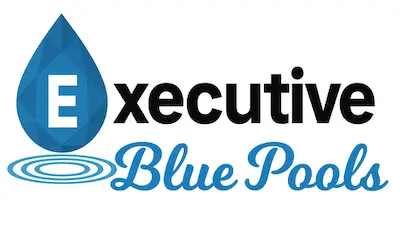
When you’re deciding on a pool system for your home, one of the first big questions is: saltwater or chlorine? It’s a decision that affects everything from water quality to your weekly maintenance routine, and even your long-term pool expenses.
Many homeowners in Frisco and nearby areas find themselves stuck between these two options, not really sure what makes them different or which one suits their lifestyle best.
That’s totally understandable—each type has its pros, cons, and care requirements. In this guide, we’ll walk you through exactly how saltwater and chlorine pools work, compare their upkeep, dive into long-term costs, and help you decide which one is better for your home.
Whether you’re considering professional saltwater pool cleaning services or trying to simplify your chlorine pool maintenance, you’ll find everything you need to know right here.
How Saltwater and Chlorine Pools Work
What Is a Saltwater Pool?
A saltwater pool isn’t like swimming in the ocean. Instead, it uses a salt chlorine generator that turns salt into chlorine through electrolysis. This process sanitizes the water naturally and keeps it clean without dumping in chemicals manually.
Benefits of Saltwater Pools:
- Gentler on eyes, skin, and swimsuits
- Less frequent chemical adjustments
- Softer water feel
- Lower long-term chemical costs
You’ll still need saltwater pool cleaning services occasionally for deep system cleaning and salt cell inspections, but overall, this is a lower-maintenance option.
What Is a Chlorine Pool?
A traditional chlorine pool uses tablets, granules, or liquid chlorine that you add manually. It’s a system most Americans are familiar with and has been the industry standard for decades.
Key Traits of Chlorine Pools:
- Lower upfront installation cost
- Easier to control chlorine levels
- Requires regular chemical balancing
- Can be maintained yourself or with professional chlorine pool maintenance
Key Differences Between Saltwater & Chlorine Pools
| Feature | Saltwater Pool | Chlorine Pool |
| Maintenance | Less frequent adjustments | Weekly chlorine and pH balancing |
| Cost | Higher initial cost, lower long-term cost | Cheaper to install, costlier over time |
| Water Quality | Soft, non-irritating | May irritate eyes and skin |
| Equipment Care | Risk of corrosion in metal components | Fewer corrosion issues, more cleaning |
| Best For | Sensitive skin, hands-off maintenance | Budget-conscious homeowners |
Real-Life Example: The Johnson Family’s Pool Dilemma in Frisco
Take the Johnsons, a family in Frisco, TX. They started out with a chlorine pool for affordability. But after a few summers of red eyes and constant chemical adjustments, they made the switch to saltwater.
Now, they enjoy:
- Softer water that’s gentler on their kids’ skin
- Less time spent managing chemicals
- Lower annual maintenance costs
They do rely on saltwater pool cleaning services once a season, but they say the tradeoff is worth every penny.
Pros & Cons of Saltwater Pools
Pros:
- Less harsh chemicals: Gentle on eyes, hair, and skin
- Low-maintenance: Fewer adjustments to pH and chlorine
- Long-term savings: Reduced need to buy and store chemicals
Cons:
- Upfront cost: Salt chlorine generators can be pricey
- Equipment wear: Salt may corrode metal ladders or lights
- Expert repairs: More technical issues may need a pro
If you’re not sure how to maintain one, professional saltwater pool cleaning services in Frisco can take care of the technical side for you.
Pros & Cons of Chlorine Pools
Pros:
- Affordable setup: Ideal for budget-conscious homeowners
- Simple equipment: No fancy systems to install or repair
- Fast sanitization: Chlorine kills bacteria quickly
Cons:
- Frequent maintenance: Weekly chlorine additions required
- Chemical storage: You’ll need a safe place for supplies
- Skin irritation: Can cause redness or dryness for sensitive swimmers
While some love the hands-on control, many turn to chlorine pool maintenance services to stay on top of the routine.
Maintenance Comparison
Saltwater Pool Maintenance
- Check salt levels and add salt when low
- Clean salt chlorine generator (salt cell) every 2–3 months
- Monthly water testing for pH, alkalinity, and stabilizer
- Occasional professional saltwater pool cleaning services for equipment and system tune-ups
Chlorine Pool Maintenance
- Add chlorine weekly
- Test water 2–3 times per week
- Adjust pH, alkalinity, calcium hardness, and chlorine
- Weekly brushing, skimming, and equipment checks
- Optional professional chlorine pool maintenance for reliable routine care
Breaking Down the Cost
Saltwater Pools
- Setup Cost: $1,500–$2,500 more than chlorine systems
- Annual Maintenance: $100–$400 (depending on usage)
- Repairs: Salt cell replacement every 3–7 years (~$600)
Chlorine Pools
- Setup Cost: $0–$500 (no generator needed)
- Annual Chemicals: $300–$800+
- Ongoing Equipment Care: More frequent, but cheaper fixes
Over a 5–7 year period, saltwater systems usually even out in cost—or even save you money with less chemical use and fewer water issues.
Myth-Busting: Common Misconceptions
Myth: Saltwater pools have no chlorine.
Fact: They still produce chlorine—it’s just done naturally through salt electrolysis.
Myth: Chlorine pools are dangerous.
Fact: Properly maintained chlorine levels are safe and effective.
Myth: Saltwater pools don’t need maintenance.
Fact: While lower maintenance, they still need salt cell cleaning and professional inspections from time to time.
Which Pool Type Is Best for You?
Choose a Saltwater Pool If:
- You have sensitive skin or allergies
- You want less weekly upkeep
- You’re okay with a larger upfront investment
- You’ll use saltwater pool cleaning services for deeper care
Choose a Chlorine Pool If:
- You want a lower initial cost
- You don’t mind weekly maintenance
- You’re experienced with DIY chemical care
- You’ll rely on chlorine pool maintenance services as needed
Environmental Impact & Pool Longevity
Saltwater systems tend to be more eco-friendly long-term since they reduce the need for packaging, chemical production, and transport. However, they can stress certain types of landscaping or corrode adjacent metal elements over time.
Chlorine systems, on the other hand, require more frequent chemical purchases and can release stronger odors—but are simpler to manage and adjust.
In terms of longevity, both systems can last 10–15 years or more with proper maintenance. A well-maintained salt system may experience fewer extreme chemical shifts, which can help extend pool liner and tile life.
Final Checklist: Still Can’t Decide?
Here’s a quick way to weigh your options:
Go Saltwater if…
- You value comfort and convenience
- You’re investing for the long haul
- You’d rather schedule services than manage chemistry
Go Chlorine if…
- You want to save up front
- You like hands-on DIY care
- You don’t mind weekly routines
Find the Right Pool for Your Home

At the end of the day, both saltwater and chlorine pools can give you clean, sparkling water for summer after summer. The key difference lies in how you want to care for it and what kind of swim experience you prefer.
If you’re looking for chlorine pool maintenance or saltwater pool cleaning services in Frisco, TX, it’s best to connect with experts who understand your pool system from the inside out.
Need help with chlorine pool maintenance or saltwater pool cleaning services? Contact our expert team at Executive Blue Pools today and let us help you choose, clean, and care for the perfect pool system for your home!
If you enjoyed this article, check out these other articles regarding Salt Water Swimming Pool:
Spring Pool Opening Checklist: How to Get Your Pool Ready for the Season in Frisco, TX
Salt Cell Not Making Chlorine?
